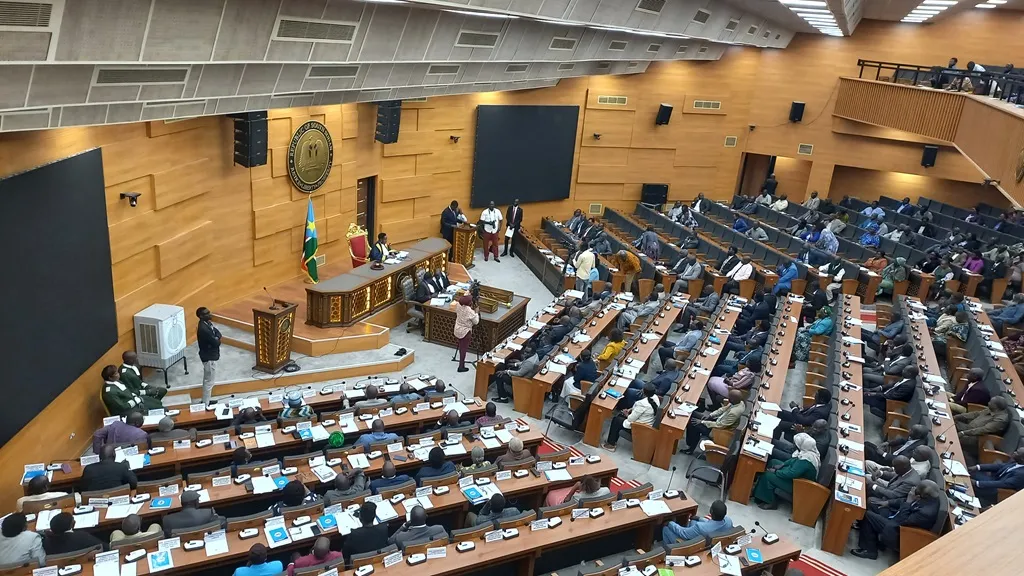Juba, South Sudan — South Sudan’s parliament on Thursday passed the long-delayed National Youth Policy 2025, a landmark framework aimed at empowering the country’s predominantly young population through representation, employment, and inclusive development.
The policy, first drafted in 2013, mandates that young people occupy 20% of positions in both national and state governments and allocates 10% of the national budget to youth-focused programs. It defines youth as citizens aged 15 to 35, reflecting a nation where more than 70% of the population is under 30.
Deputy Chairperson of the Joint Parliamentary Committee for Legislation, Justice, Youth, and Sports, Deng Tong, hailed the law as the outcome of “nearly two decades of consultation and institution building.”
“It provides an integrated, holistic, and coordinated legislative framework for youth development,” Tong said during an extraordinary session. “It is a binding legal instrument with clear mandates, accountability, and funding mechanisms.”
The new legislation transforms the former South Sudan Youth Union into a National Youth Council, aligning the body with East African Community (EAC) standards.
Tong said the policy also aligns with South Sudan’s Transitional Constitution and the African Youth Charter, aiming to ensure “a future where youth can thrive free from discrimination, conflict, and disease.”
Key goals of the policy include:
- Promoting youth participation in peacebuilding and governance,
- Expanding access to education, vocational training, and entrepreneurship,
- Raising awareness on health and gender equality, and
- Addressing substance abuse and reproductive health challenges.
Lawmakers Grace Abalang and Nyang Johnson Lok Riek praised the 10% budget provision as a realistic commitment to tackling unemployment and youth disenfranchisement.
“Without this policy, many of our youth have joined rebellion,” Abalang said.
However, others proposed lowering the allocation, citing limited state revenues. The age range of 15–35 also drew debate, with some MPs suggesting the policy should follow the 2008 Penal Code, which defines adults as 18 and above.
The policy’s passage was celebrated by civil society and youth leaders who had long lobbied for it.
Edmund Yakani, Executive Director of the Community Empowerment for Progress Organization (CEPO), described it as “a milestone in youth advocacy.”
“Our next step is ensuring ownership and genuine implementation,” Yakani said.
Florence Agiba, Executive Director of Markaz Al Salam, echoed that view, urging the government to move from “policy to action.”
“Drafting policies is important, but implementation is what changes lives,” she said.
The government now faces the challenge of delivering on its commitments amid economic instability and fragile peace, even as optimism grows that the policy could mark a turning point for South Sudan’s youth empowerment.












Leave a Reply